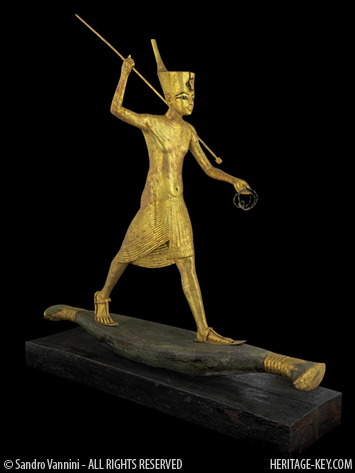As US President Barack Obamasorts out theforeign policy mess made by his now infamous predecessor he would be well advised to brush up on his ancient history. More than 1,800 years ago, a Roman emperor, Hadrian, faced a problem that was eerily similar. He inherited a great foreign policy mess from his own predecessor Trajan.
For as long as Rome had occupied territory in the Middle East (1st century BC) there had been tensions along the eastern border. The main problem they had was with an empire called the Parthians who occupied modern day Iraq and Iran.
The tensions had boiled over into war before. Ironically Nero, an infamous emperor himself, helped negotiate a peace deal that allowed for a buffer state, Armenia, to exist between the two empires.
However Trajan was not interested in negotiation. When a conflict erupted in 113 AD over whom the king of Armenia would be – Trajan did something no emperor had done before he didnt just fight the Parthians, he sought to annex their territory in Iraq.
His Parthian War therefore marks a deliberate change of policy and a shift of emphasis in the grand strategy of the Roman Empire, wrote New York Metropolitan Museum of Art curator Christopher Lightfoot in an article.
In a sweeping campaign that lasted from 114 AD to 116 AD, Trajan used seven legions to sweep away the Parthian King Osroes and occupy his capital Ctesiphon, a city near the Persian Gulf.
Back at home the Roman senate was enthusiastic and awarded him the title Parthicus which translates to Victorious in Parthia.
His accolades were short lived. The territory he now controlled, which he organized into three new provinces called Armenia, Assyria and Mesopotamia, lacked natural defensive barriers. This meant that he had to keep a large force present to protect it.
Making matters worse he had failed to capture Osroes. Rather than take on Trajans army directly the Parthian king had snuck away and was helping to instigate revolts against the Romans.
Trajan tried to solve these problem by installing a Parthian King of his own choosing, Parthamaspates, to rule over the new territories as a sort of client state.
But, things only got worse for Trajan.
Parthamaspates proved unable to stop revolts in Assyria and Mesopotamia, and in Judaea a new revolt broke out. With many of the eastern legions off in Iraq, the Romans lacked the military manpower necessary to put it down.
Faced with two revolts Trajan headed for home and died in Cilicia in August 117 AD.
Enter Hadrian
When Hadrian assumed power, following the death of Trajan, he was faced with an overstretched military and two revolts. He quickly came to the conclusion that he couldnt hold onto the new conquests in Parthia. In fact he couldnt even try to support the client king, Parthamaspates.
So he made a decision by 118 AD to abandon him and withdraw his forces from Armenia, Assyria and Mesopotamia.
Parthamaspates was quickly defeated by Osroes, who returned from his guerrilla role to become king again.
Rome had suffered a humiliating loss.
But Hadrian had learned from his predecessors failures. Over the course of his rule he travelled broadly across the empire seeing first-hand the problems and inefficiencies. In 122 AD he was in Great Britain and realized that a defensive barrier was needed to hold land south of Scotland.
He ordered the construction of Hadrians Wall, a fortification system across a narrow channel of land in Northern England, which is still with us today. Indeed Hadrian spent his ruler-ship not acquiring new territory, but putting down rebellions in Judaea and Anatolia, re-organizing the administration of Italy and organizing new defences.
In Greece he placated the population with a building program that saw the temple of Olympian Zeus, in Athens, completed.
When he died in 138 AD, he left behind an empire that was smaller but with a military that was fully intact and would continue to act as a superpower in the years ahead.
Now, Im not claiming that Hadrians personality reflects Obama’s. Indeed Hadrian’s brutal persecution of the Jews suggests that it was anything but.
But the situation in present-day Iraq almost mirrors that faced by Obama.
Do you try and support a ruler that was forcibly brought in by your predecessor? Or do you pull up stakes and leave?Turning your attention tomaking your land more defensible and your administration more efficient?



